Article
Getting Started with Enterprise Resource Planning Software
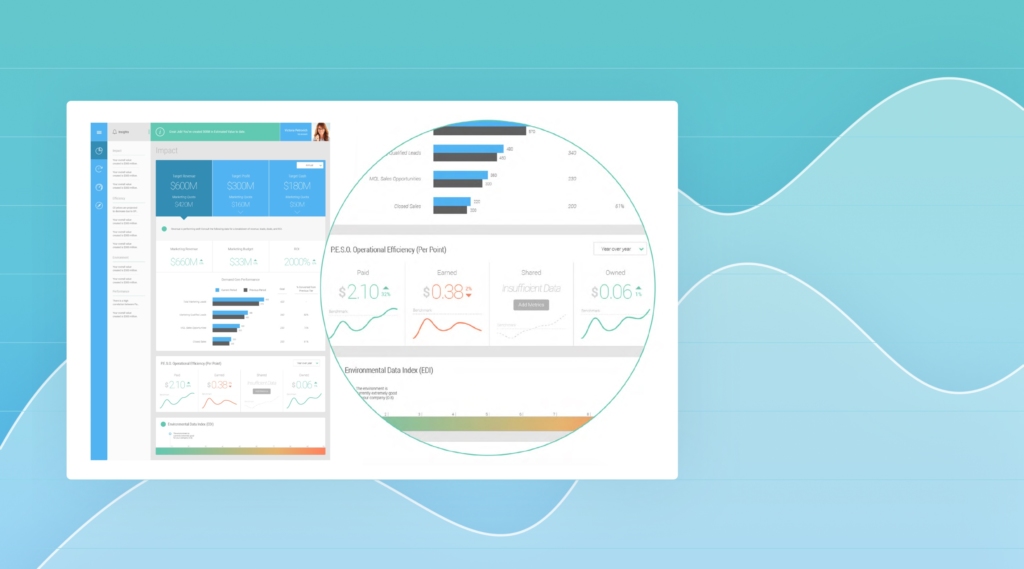
What is enterprise resource planning software?
Enterprise resource planning (ERP) is exploding in prominence, with the trend expected to continue over the next decade:
- 2022 market value: $54.77 billion
- 2030 revenue forecast: $123.41 billion
- Growth rate: CAGR (“compound annual growth rate”) of 10.7% from 2022 to 2030
These numbers are promising for creators of ERP software, like our in-house development team. The bottom line for software development companies is that there’s enormous value to tap into.
But the numbers also highlight the widespread need for useful, usable tools that make doing business in the modern world easier. For organizations seeking to unify their business processes, consolidate corporate financial data, and optimize workflows and performance, ERP systems are essential.
This article covers why your business should consider using ERP software, what industries benefit most from ERP solutions, and the pros and cons of off-the-shelf platforms versus custom solutions.
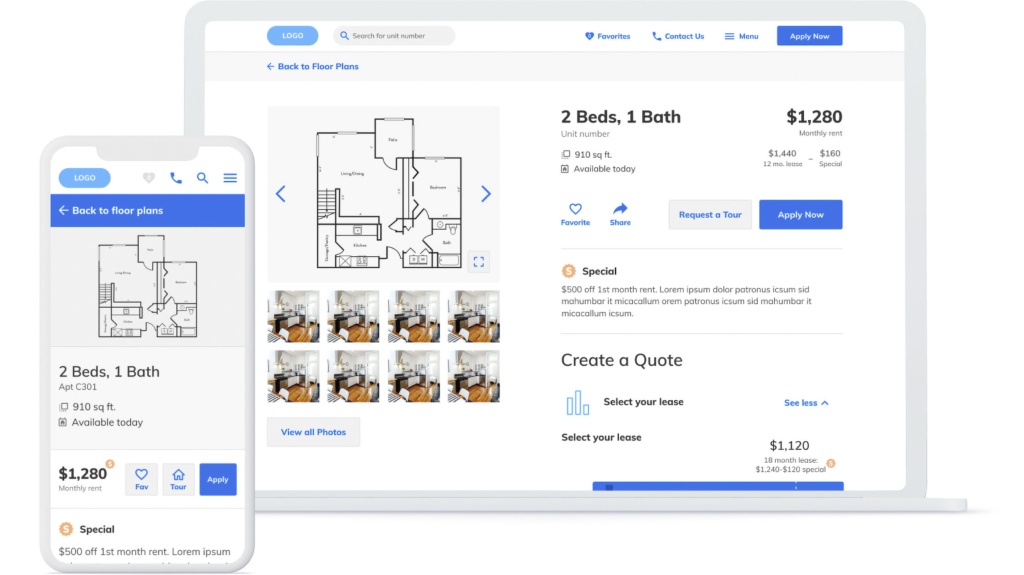
Why should your business consider ERP software solutions?
ERP solutions, despite the “enterprise” moniker, are relevant for most businesses, regardless of industry, given their practicality:
“(ERP is) a type of software that organizations use to manage day-to-day business activities such as accounting, procurement, project management, risk management and compliance, and supply chain operations.”
ERP software systems are essentially suites: all-in-one solutions that bring documents, business operations, teams, communications, and much more together under a singular umbrella.
Companies that invest in ERP systems experience myriad benefits, including:
- Real-time, up-to-date information and data: ERP systems channel a constant stream of data sent between various departments. Issues in finance affect service departments, and customer experience insights can have significant repercussions for sales teams. With a seamless exchange across departments, insights become visible. Real-time updates and sharing is essential, given the pace at which modern businesses operate. That’s where ERP comes in. Leaders equipped with ERP systems are better positioned to make critical decisions with the most up-to-date data.
- Wide-scale accessibility to the information contained within ERP applications: This is connected to the previous point. Businesses are complex––living, breathing, constantly evolving organisms. A central repository for information is crucial. One source of truth (in this case, an ERP system) can provide shared access to the documents and insights needed for decision-makers to take action.
- Customizable, cloud-based ERP modules: Cloud-based systems allow departments and teams to work asynchronously (remotely, geographically distant, hybrid workflows of online and offline collaboration, etc.) while maintaining consistent productivity. As organizations become more decentralized, cloud-based enterprise services will become even more essential, and ERP lends itself well to the shift.
- Increased productivity via automation: Powered by RPA (Robotic Process Automation), ERP software decreases unnecessary manual work by automating daily tasks. Anything from scheduling to document sharing, business intelligence, and workflow management can benefit from automation. The result is more time and energy to devote toward impactful strategic work that machines can’t perform.
- Streamlined UI and UX: Consistent user experience and interface design make it easy for teams to do business across an organization. An industrial designer, a salesperson, and an office staff member do three very different things. But equipped with the right tool, the “user experience” of collaborating is more seamless and less cumbersome. A well-designed custom ERP system allows every department to operate from a similar platform for certain tasks, eliminating roadblocks. With consistent UI and UX patterns, collaboration becomes even easier.
These are just five of the many benefits ERP platforms offer. But adopting or building ERP is a significant investment.
In our experience, however, the long-term value outweighs the initial cost. For the sheer value of streamlining cross-organizational workflows, ERP solutions make sense.
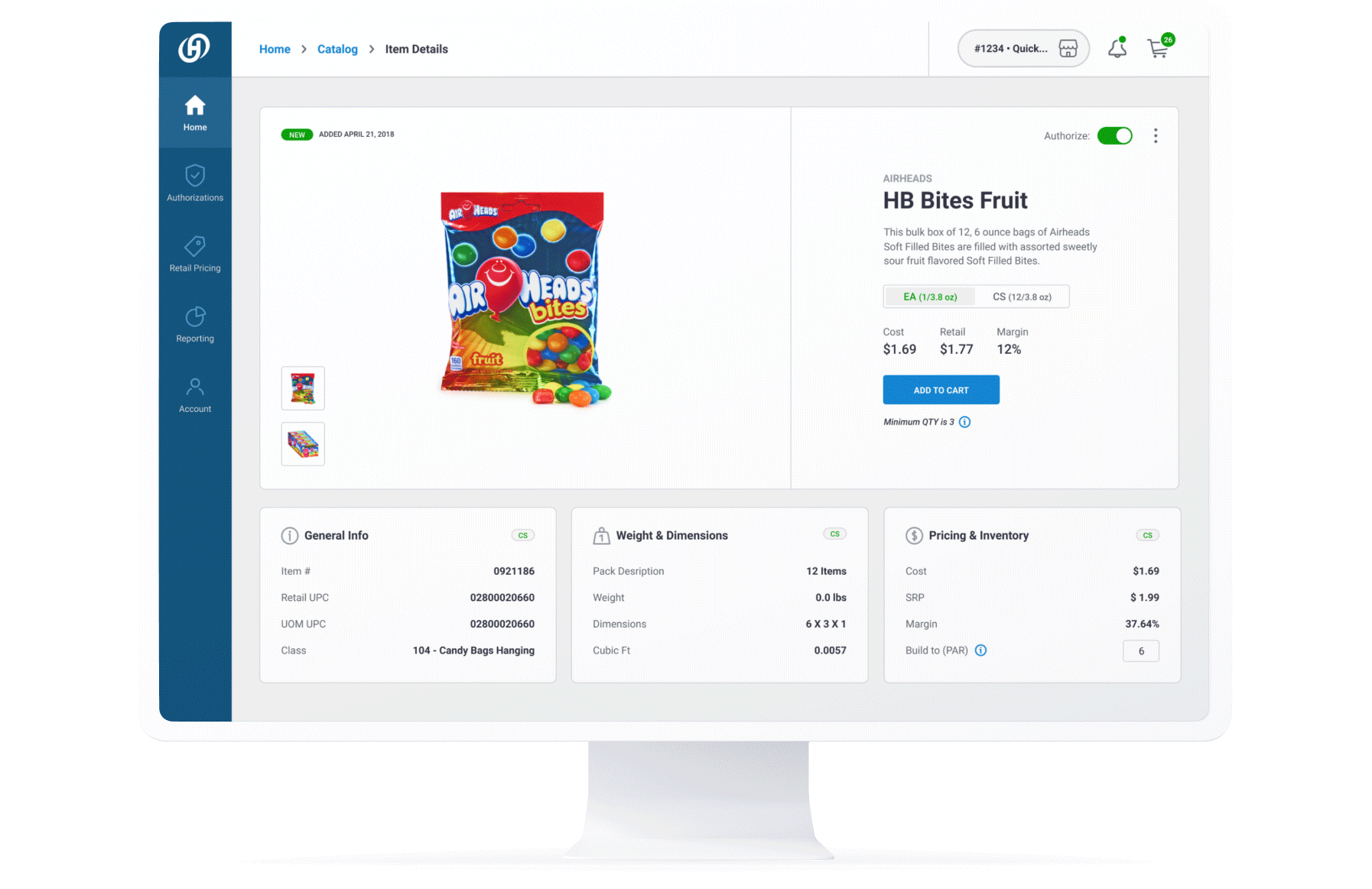
What industries benefit from ERP software?
Earlier in this post, we noted the “enterprise” moniker and how it’s misleading.
Enterprise brings to mind synonyms like corporations, ventures, consortiums, and conglomerates. While the largest organizations do take advantage of ERP solutions, ERP makes sense for small and medium-sized businesses as well, especially as workplace collaboration becomes increasingly decentralized and asynchronous.
ERP solutions are not just for “enterprises,” and their origin in manufacturing illustrates the point:
“ERP history started with material requirements planning (MRP) systems in the 1960s, when J.I. Case, a manufacturer of tractor and construction machinery, worked with IBM to develop what is believed to be the first MRP system. Thereafter, large manufacturers built these MRP solutions themselves.”
J.I. Case eventually became CASE. The company’s success begs the question as to whether ERP-like software played a role.
McCue goes on to describe the transition from pure MRPs to more generalized ERPs:
“By 1990, research firm Gartner coined the term “enterprise resource planning.” The new name recognized that many businesses—not just manufacturing—were now using this technology to increase the efficiency of their entire operations.”
ERPs increase the efficiency of an organization’s operations. That’s it, in a nutshell. And with modern cloud-based ERP solutions, the benefits are available in a more decentralized fashion, allowing collaborators to share and act on real-time insights from across the globe.
Myriad industries are taking advantage of enterprise resource planning, including:
- Insurance: Managing operational costs, streamlining manual workflows, automating routine tasks, forecasting, and general business intelligence. Cloud-based ERP software can help insurance companies across the spectrum continue to provide exceptional customer service while tackling the changes associated with an increasingly digital world, labor shortages, and decentralized collaboration.
- Human resources: Human capital management, recruiting, onboarding, training, and reporting. Up-to-date information about the people inside your organization equips HR professionals to be more effective.
- Supply chains and logistics: Supply chain management, inventory management, warehouse management, and order management. Like manufacturing, supply chain and logistics management is more directly tied to the MRPs of the 60s, even though the nomenclature has changed.
- Manufacturing: Manufacturing process management, material requirements planning, and order processing. This is another clear-cut example of why ERP-like solutions were originally created. For something as complex as a manufacturing process, ERP solutions are essential.
- Finance / FinTech: Forecasting, financial reports, financial management, invoicing, accounts payable, and accounts receivable. These insights are vital for industries making decisions about where to allocate resources. For FinTech organizations that manage the flood of complex digital data about the financial industry, maintaining clarity about market trends and fluctuations in real-time is imperative.
- Commerce: E-commerce, order processing, shipping, customer relationship management (CRM), purchase orders, and item listing. Organizing all of the components above of modern commerce into one software solution creates a more streamlined approach to customer service.
- Nonprofit(s): Project management, event planning, outreach, and business functions. Being accountable to founders, donors, recipients, volunteers, and the general public requires extensive collaboration and coordination, something ERP solutions excel at providing. For a nonprofit, building public trust is essential. With ERPs, teams can be more accountable for their decisions and better understand their impact.
- Technology, High-Tech, advanced technology: This is a big category, but think of it as the dozens of industry subsets adjacent to the general “technology” umbrella that would benefit from an all-in-one operational solution. Tools to manage workflows across departments––and systems to integrate interdependent technologies like Internet of Things (IoT) solutions, artificial intelligence integrations, and machine learning––are vital for companies that thrive on the cutting edge of innovation.
- Hospitality: Back-office software, reservation management, point of sale (POS) systems, and product management. From Airbnb and Vrbo to Hilton and Disney Resorts, a tool to manage operations is crucial. But the same is true for smaller hospitality businesses that need a custom-tailored ERP solution with less functionality or designed for a specific niche.
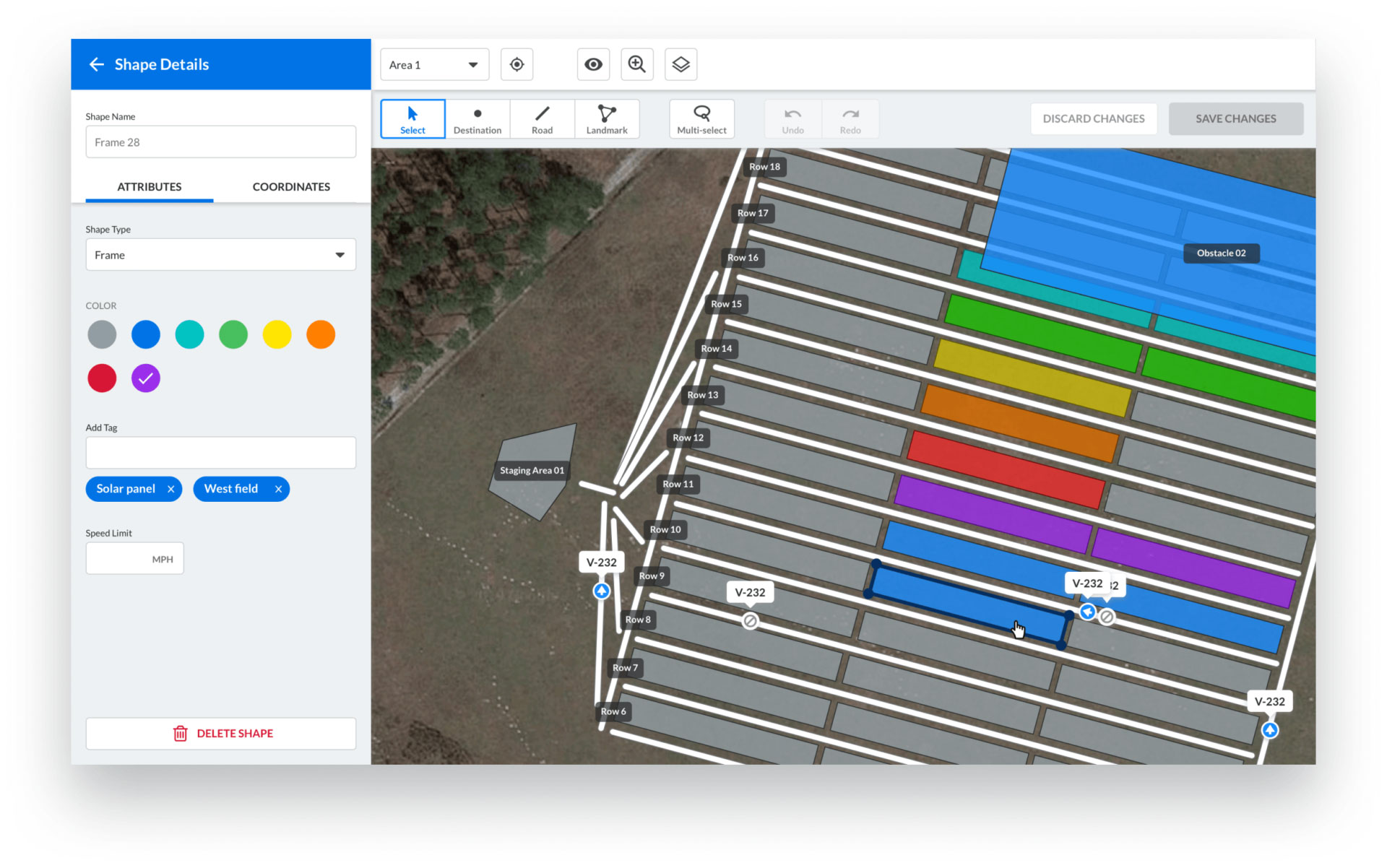
A note on “off-the-shelf” versus “custom”
Custom ERP software is an investment, but an end-to-end development approach like ours decreases risk (‘build the right product, build the product right’), maximizes ROI, and ensures that each dollar you spend is allocated strategically toward a functional, value-generative end product.
What about off-the-shelf? And why do we typically recommend custom ERP software or at least semi-custom?
In many cases, off-the-shelf only gets you part way there.
In transforming from a startup to an established company, most organizations leverage ad hoc legacy enterprise systems to combine spreadsheets, ledgers, email, and dozens of other business-related tools. While these ad hoc systems might temporarily suffice for small businesses and startups, medium-sized and large enterprises require more comprehensive solutions for managing business processes.
Off-the-shelf solutions work in some cases. They’re typically designed based on the most common challenges that organizations face. However, what works for one business rarely works universally for all businesses, and that’s where customized platforms shine.
Our approach involves a deep analysis of the unique challenges that organizations face. From there, we develop a system that only contains what’s needed, starting with less, with an eye toward future growth and scalability.
The pros and cons of off-the-shelf (OTS)
Pros:
- Enterprise resource planning software providers like Oracle NetSuite, Sage, and SAP produce ERP modules that work out of the box. These organizations provide top-notch accounting software, material requirements planning (MRP) solutions, and dashboards that provide real-time data and reporting. A library of APIs and scalable pricing as businesses expand are also pros.
- Off-the-shelf ERP solutions also carry the benefit of fast implementation. Platform providers have already developed a product that your IT team can install quickly. The speed in execution adds to the flexibility of an off-the-shelf ERP application. Most include cloud functionality, an essential feature in the modern business landscape.
Potential cons:
- Businesses operate in different ways––see the above previous point about how what works for one business doesn’t work universally for all businesses. A procurement agency is drastically different than a hospital. Some off-the-shelf features could be shared, but the nuances are worth considering and understanding. (a note on this––Fresh often consults with clients when implementing off-the-shelf solutions, providing consultation on getting the most of the selected platform)
- Time saved upfront with regard to immediately implementing a solution can result in money lost and effort multiplied down the road. If a business deploys an off-the-shelf solution without being ready to leverage the data, make use of the features, onboard and train their teams, etc., it can create significant operational roadblocks.
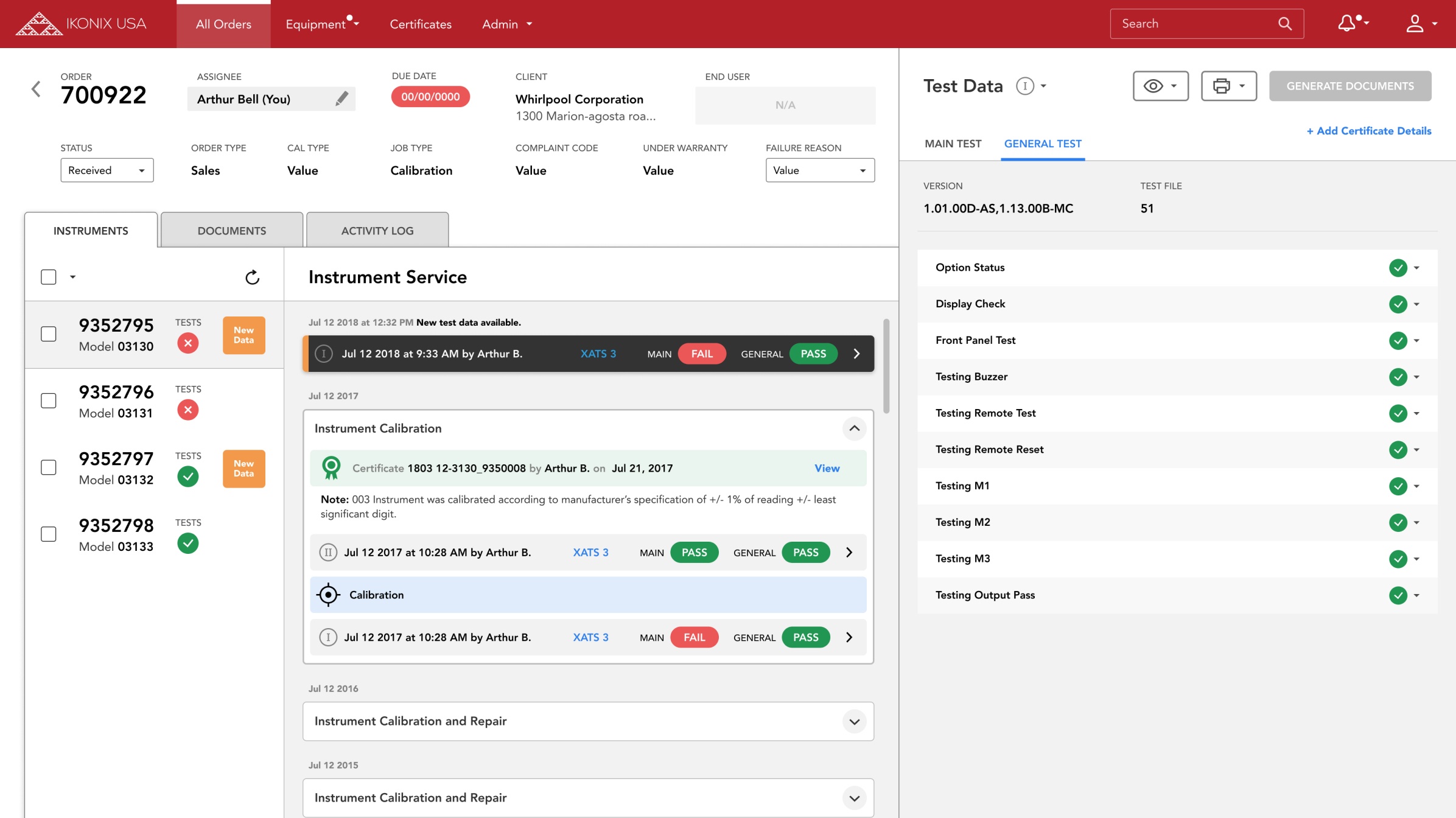
The pros and cons of custom ERP solutions
Pros:
- A custom ERP allows you to build an optimized platform for your exact needs. And sometimes, there isn’t a relevant off-the-shelf option, either. At Fresh, we emphasize research to better understand stakeholders, employees, customers, and other users to help companies hone in on an ideal ERP system.
- Dedicating an internal team to evaluate business needs, employee input, and other critical factors is a challenge. A third-party consultant that works as an extension of your team can help in identifying the core problem in question, then build the ideal solution.
- A holistic evaluation of your business ecosystem is invaluable. That ecosystem extends to operational processes, workflows, personnel, facilities, and teams. It’s challenging to look at things in a non-biased way when you’re close to them, which is another reason why an end-to-end approach to custom ERPs can help.
Potential cons:
- Designing a custom ERP software system requires determining whether you utilize an on-premise ERP, hybrid setup, or cloud-based system. Being able to assess that independently can be challenging, depending on whether you’re staffed to do so. Working with a partner costs money and takes time, something certain businesses cannot afford.
- Maintenance and training are essential. With an off-the-shelf solution, FAQs and support teams might already be in place (which can be overkill if you only leverage a small part of the system). That said, your organization needs to be prepared to budget for maintenance, support, and improvements with a custom approach.
- Implementing custom ERP management systems requires strategic planning, which certain organizations don’t have the time or resources to undertake. This also requires investing in a partnership.
All of this said, the cons of a custom system are also true for off-the-shelf systems. They’re just not necessarily advertised.
- Determining on-prem, hybrid, or cloud-based is still vital when selecting an off-the-shelf solution. Having a third party to assist with determining how to best implement Oracle, Sage, SAP, or any other of industry-leading solutions is helpful.
- Maintenance and training are vital with off-the-shelf and custom. Often, a support portal isn’t enough.
- Strategic planning is in most cases even more critical than the ERP itself. ERPs are not bandaids. Off-the-shelf solutions carry an enticing value proposition, but a deeper investigation into a business ecosystem is important whichever direction you decide to go.
With a customized approach––following an established process like ours or another agency’s––the heavy-lifting efforts mentioned above are baked into the process. They should be, at least, or there’s an increased likelihood of creating more problems.
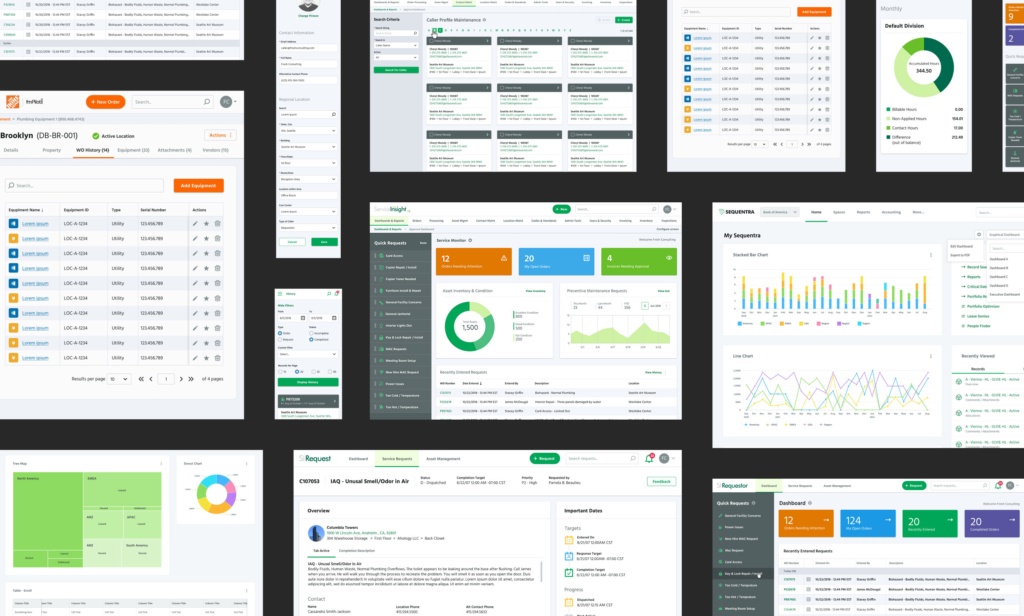
Need consultation on enterprise resource planning solutions? Let’s talk.
Fresh’s holistic approach to design and development involves more than just building an enterprise resource planning solution. Working with clients across a range of industries for over 15 years, we’ve found that consultation is essential to “building the right product, and building the product right.” And in our increasingly competitive, globalized business landscape, sticking the landing with ERP or any software product is essential.
If you’re unsure about where to start, let’s connect! We look forward to hearing from you.









